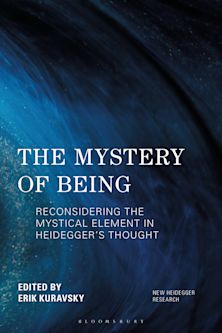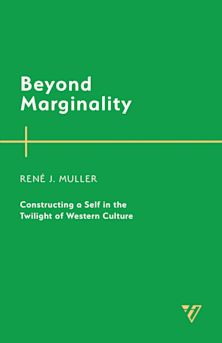- Home
- ACADEMIC
- Philosophy
- Philosophy - Other
- Teaching Philosophy
Teaching Philosophy
Theoretical Reflections and Practical Suggestions
Tziporah Kasachkoff (Anthology Editor) , Jonathan E. Adler (Contributor) , Martin Benjamin (Contributor) , James P. Cadello (Contributor) , Steven M. Cahn (Contributor) , Joan C. Callahan (Contributor) , Jo A. Chern (Contributor) , Stephen H. Daniel (Contributor) , Juli Eflin (Contributor) , Carrie Figdor (Contributor) , Newton Garver (Contributor) , Theodore A. Gracyk (Contributor) , Lawrence H. Hinman (Contributor) , Eugene Kelly (Contributor) , David Martens (Contributor) , Michael Martin (Contributor) , John McCumber (Contributor) , John J. McDermott (Contributor) , Marshall Missner (Contributor) , Kathleen Dean Moore (Contributor) , Ronald Moore (Contributor) , Louis P. Pojman (Contributor) , Anthony Weston (Contributor) , Merold Westphal (Contributor) , V Alan White (Contributor) , Celia Wolf-Devine (Contributor)
Teaching Philosophy
Theoretical Reflections and Practical Suggestions
Tziporah Kasachkoff (Anthology Editor) , Jonathan E. Adler (Contributor) , Martin Benjamin (Contributor) , James P. Cadello (Contributor) , Steven M. Cahn (Contributor) , Joan C. Callahan (Contributor) , Jo A. Chern (Contributor) , Stephen H. Daniel (Contributor) , Juli Eflin (Contributor) , Carrie Figdor (Contributor) , Newton Garver (Contributor) , Theodore A. Gracyk (Contributor) , Lawrence H. Hinman (Contributor) , Eugene Kelly (Contributor) , David Martens (Contributor) , Michael Martin (Contributor) , John McCumber (Contributor) , John J. McDermott (Contributor) , Marshall Missner (Contributor) , Kathleen Dean Moore (Contributor) , Ronald Moore (Contributor) , Louis P. Pojman (Contributor) , Anthony Weston (Contributor) , Merold Westphal (Contributor) , V Alan White (Contributor) , Celia Wolf-Devine (Contributor)
This product is usually dispatched within 3 days
- Delivery and returns info
-
Free US delivery on orders $35 or over
You must sign in to add this item to your wishlist. Please sign in or create an account
Description
The difference in the practical approach to teaching philosophy can mean the difference between an engaging class and an excruciating one. In this expanded edition of In the Socratic Tradition (1997) Kasachkoff adds new sections on teaching philosophy with computers, teaching philosophical explanation, and teaching philosophy of gender. Chapters in the collection share the pedagogical insights of more than two dozen distinguished philosophers, offering practical suggestions on such issues as how to motivate students, construct syllabi and creative examinations for specific courses, and teach complex philosophical concepts. Like its predecessor, Teaching Philosophy will be an indispensable resource for teachers of all levels and fields of philosophy, and will be particularly helpful in lending inspiration to graduate students and professors called upon to teach courses outside of their specialty areas.
Table of Contents
Chapter 2 Teaching Introductory Philosophy
Chapter 3 Introducing Philosophy
Chapter 4 Teaching Introductory Philosophy: A Restricted Topical Approach
Part 5 II Helping Our Students Improve
Chapter 6 How to Improve Your Teaching
Chapter 7 Reading and Interpretation: A Heuristic for Improving Students' Comprehension of Philosophy Texts
Chapter 8 Improving Student Papers in 'Introduction to Philosophy' Courses
Chapter 9 Using Essay Exams to Teach and Not Merely to Assess
Part 10 III Teaching Applied Ethics
Chapter 11 From the "Applied" to the Practical: Teaching Ethics for Use
Chapter 12 A Social Dilemma Game for an Ethics Class
Part 13 IV Teaching Philosophy with Computers
Chapter 14 Teaching With a Screen
Part 15 V Teaching Aesthetics
Chapter 16 The Case Method Approach to the Teaching of Aesthetics
Part 17 VI Teaching Philosophy of Religion
Chapter 18 Teaching Philosophy of Religion (either as a full course or as part of an 'Introduction to Philosophy')
Chapter 19 Three Courses in Philosophy of Religion
Part 20 VII Teaching Critical Thinking
Chapter 21 Using Pseudoscience in a Critical Thinking Class
Chapter 22 A Critical Thinking Portfolio
Part 23 VIII Teaching Philosophy Through History
Chapter 24 The Teaching of Philosophy-Historically
Part 25 IX Teaching Kant/Teaching Hegel
Chapter 26 A User-Friendly Copernican Revolution
Chapter 27 Charting Kant
Chapter 28 On Teaching Hegel: Problems and Possibilities
Chapter 29 Hegel and Family Values
Part 30 X Teaching Existentialism/Teaching Continental Philosophy
Chapter 31 Teaching Existentialism
Chapter 32 Teaching Recent Continental Philosophy
Part 33 XI Teaching Philosophical Explanation
Chapter 34 Teaching 'Inference to the Best Philosophical Explanation'
Part 35 XII Teaching Philosophy of Gender
Chapter 36 Teaching Gender Issues-Philosophically
Part 37 XIII Looking at What We Do in the Classroom
Chapter 38 Uncovering the "Hidden Curriculum": A Laboratory Course in Philosophy of Education
Chapter 39 A Graduate Seminar on Teaching Philosophy
Part 40 About the Contributors
Part 41 About the Editor
Product details
| Published | Mar 24 2004 |
|---|---|
| Format | Paperback |
| Edition | 1st |
| Extent | 302 |
| ISBN | 9780742514492 |
| Imprint | Rowman & Littlefield Publishers |
| Dimensions | 9 x 6 inches |
| Publisher | Bloomsbury Publishing |
About the contributors
Reviews
-
It is not only students who need an occasional injection of new approaches in the classroom to motivate and enhance their learning. Both beginning and seasoned philosophy teachers also welcome fresh ideas and will find these essays a great resource for energizing their teaching.
Rosalind Ekman Ladd, Professor of Philosophy Emerita, Wheaton College, Massachusetts



































